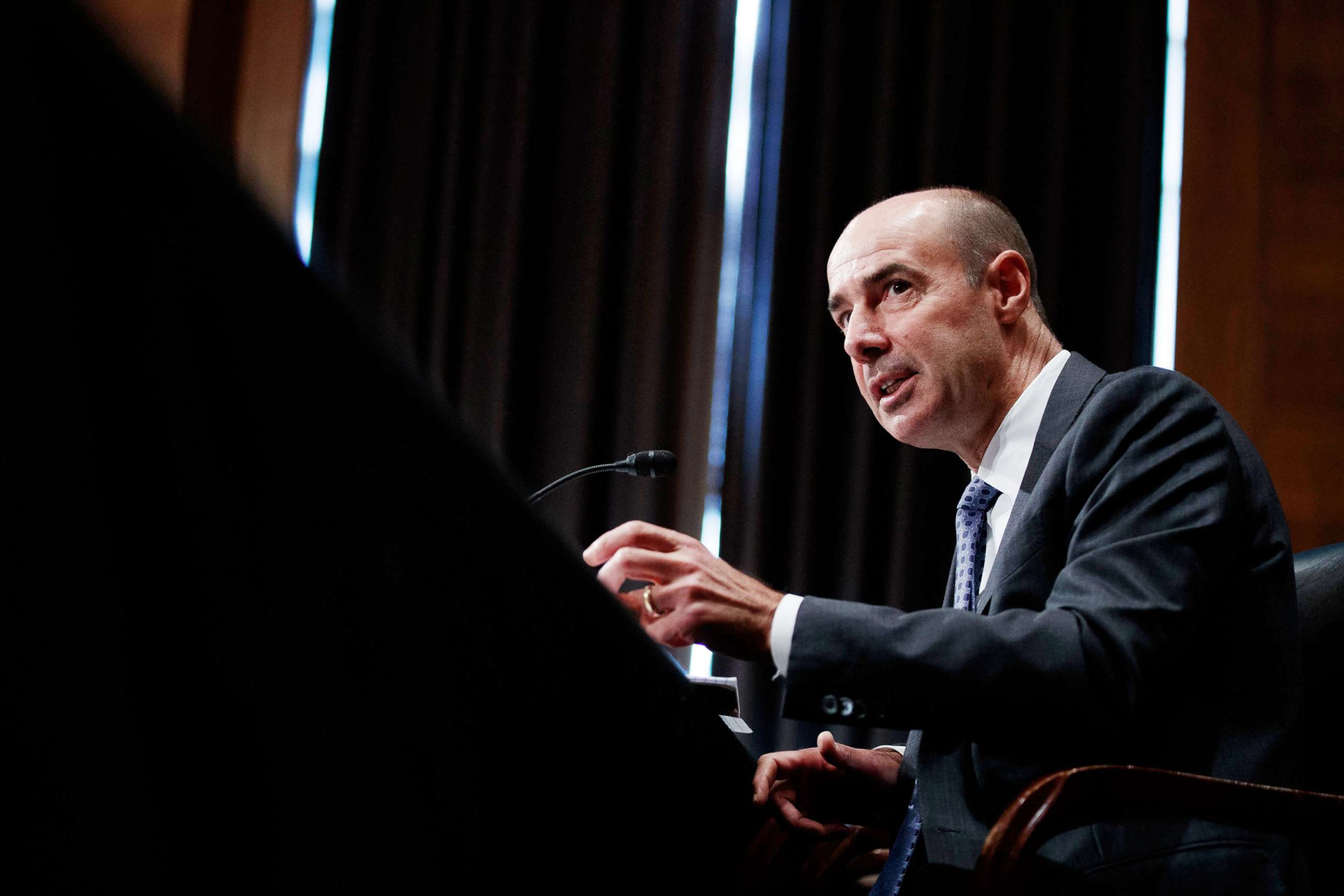It would be 'wrong' to get fired because of sexual orientation, gender identity: Trump's Labor nominee
Eugene Scalia is Trump's pick to head Labor Department
The son of a conservative icon and now on track to become the next Labor secretary, Eugene Scalia told a Senate panel on Thursday that it would be "wrong" for employers to fire someone because of their sexual orientation or gender identity.
The issue of rights for LGBTQ workers has taken on particular significance under the Trump administration because of its promise to protect "religious freedom" for employers and health care workers. The Supreme Court is expected to hear arguments this fall on cases involving people who say they were fired because of their sexual orientation. The Trump administration's lawyers have argued in a court filing that the law "does not prohibit discrimination against transgender persons based on their transgender status."
"Do you believe it is wrong for an employer to terminate someone based on their sexual orientation or gender identity?" asked Sen. Tim Kaine, D-Virginia.
"I do believe it’s wrong," Scalia replied. "I think that most of my clients had policies against that. Certainly my firm did. And it's something that would not have been tolerated by me or my firm, or most of my clients."
Scalia also was asked about an article he wrote in 1985 in college titled "Trivializing the issues behind gay rights." In the article, he said he wasn’t sure where he stood on the issue of gay rights but suggested at one point that families with "homosexual lifestyles" are not "equally acceptable or desirable as the traditional family life."
On Thursday, Scalia said "I certainly have changed" on how he views many issues since college.
"I wouldn’t write those words today," Scalia said when asked about the passage by Sen. Chris Murphy, D-Connecticut. "In part because I now have friends and colleagues to whom that would cost pain, and I would not want to do that."

In his first testimony as President Donald Trump’s Labor nominee, Scalia also promised to take "a careful look" at a recent Trump administration proposal that would allow federal contractors to factor in a person's religion when hiring.
Critics of the plan say it would enable employers to discriminate against LGBTQ workers and other groups by claiming the employee didn’t share their religious views.
Scalia has been embraced by conservatives as a person who would follow the law. But the top Democrat on the panel, Sen. Patty Murray of Washington, called him "an elite corporate lawyer with a long history of working for corporations and against workers."
Scalia has spent most of his career at the law firm Gibson, Dunn & Crutcher. He spent one year as the Labor Department’s solicitor during the Bush administration. His father, Supreme Court Justice Antonin Scalia, died in 2016.
The AFL-CIO, one of the country’s largest unions, is opposing the nomination on the grounds that he represented clients against lower-wage workers, including a casino owner who wanted to force dealers to split their tips with floor supervisors. The union described this as wage "theft" by the casino.
"After spending a lifetime attacking the rights and dignity of working people, Scalia is ready for another chance to ruthlessly advance corporate interests," the AFL-CIO said in a statement. "His specialties include eroding labor rights, unraveling consumer protections, endangering Americans' retirement security and blaming workers for their own deaths."
Scalia defended his time as a private attorney, noting the critical role lawyers play in a democracy by defending clients' legal rights even if the client is not well-liked.
"I am not necessarily my clients," he said. "I will seek to defend them, to vindicate their rights but that doesn't mean that I necessarily think that what they did was proper."
On the proposed Labor Department rule, Alabama Democratic Sen. Doug Jones said: "I'm all about religious freedom. I really am. But I don't want that religious freedom to be used to discriminate against people in the workplace."
Scalia said he was aware of "strong views" on the rule.
"If confirmed, I'm going to take a careful look at that rule-making to see that we get that balance right between our interest in protecting religious liberty on the one hand, and on the other hand not discriminating improperly on other grounds," he told the panel.




